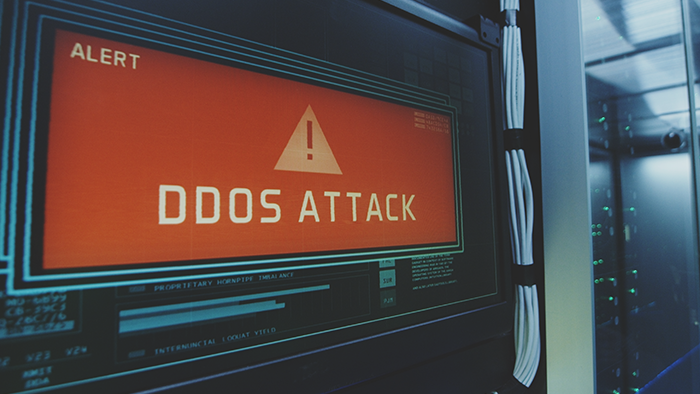By Bryan Hamman, regional director for Africa at NETSCOUT
There is an old saying which notes that ‘There’s nothing new under the sun’. Gamers today, however, might disagree, because, as computing and graphics power has grown exponentially in the last few decades, gamers around the world share in a feeling of being deeply engaged with – and even transported into – the screen. With graphics as good as they are now, it arguably is a leap into a new dimension.
To see just how incredible this new online dimension has become, we only have to look at how the world of video games has gone from the simple graphics of Pacman in 1980 to the astonishing cyber-reality of today’s games, like Fortnite and Call of Duty for example. Gaming computer graphics continue to become ever better in their hyper-realism, which is no doubt one of the reasons why gaming today has become a multi-billion-dollar industry and is no longer the sole realm of children and teenagers.
RELATED: One-third of gamers suffered online gaming account hack
Sadly, though, what isn’t new for gamers is the way that they’ve become the latest lucrative target for threat actors. Global NETSCOUT findings have recently pointed to gaming, as well as the gambling associated with gaming, as being a primary target for Distributed Denial of Service (DDoS) attacks. This is according to the NETSCOUT DDoS Threat Intelligence Report for 2H2023, which dissects attack trends and methodologies.
Gaming and gambling on the DDoS radar
The NETSCOUT report notes that: “Threat actors are drawn to the sector’s substantial financial value and the goal of disrupting competitors, especially during online esports tournaments. Historically, 80-90% of all DDoS attacks are related to gaming and gambling. NETSCOUT assessed attacks on enterprises in these sectors, determining that more than 100,000 DDoS attacks were deployed against those in gaming, and over 20,500 were made against those tied to gambling in 2023.”
These are significant numbers, and the casualties, often online gaming companies, suffer substantial economic losses and must exert significant efforts to restore their services. This increased vulnerability is due to the sector’s strong dependence on digital infrastructure, making gaming platforms prime targets for cybercriminals.
For example, in February and May of this year, the global gaming community was affected by DDoS attacks perpetrated against Blizzard Entertainment and Final Fantasy 14, when massive waves of traffic were deliberately sent to overload servers, thus interrupting the online player experience.
In another alarming development, secret documents containing confidential US Intelligence were leaked in April 2023 on a videogame chat server, in what has come to be described as the worst Pentagon leak in years.
We thus pose the question: How much could gaming security affect users on the African continent?
A look at the local gaming scenario
Taking a step backward, it is useful to put the regional gaming landscape in context. Africa is a promising and rapidly developing market for the gaming industry, with a high proportion of younger people making up the overall population.
According to The Exchange.Africa, a regional newsroom headquartered in Nairobi, Kenya, the African gaming industry is emerging as a fast-growing sector, driven by a young population, increasing smartphone adoption and a growing interest in mobile games. It notes that promising sub-sectors of the gaming business include mobile gaming, e-sports, game creation and virtual reality (VR), and adds that some African governments are seeing the sector’s potential and actively encouraging its expansion.
According to a report by Newzoo, a leader in video games and gamer data, South Africa alone is home to 26.5 million gamers, of whom 85% of players are mobile gamers while 15% make up console and PC numbers. The majority of gamers in South Africa, comprising 47% of the group, are aged between 14 to 28. Another 30% of gamers are aged 29 to 42 years of age.
The Exchange Africa notes that the continued growth of the gaming sector across Africa could lead to employment possibilities, innovation and global exposure to the continent’s cultures and landscapes as locally created content becomes part of the mainstream gaming world.
This is good news for the industry – but caution is required.
Caution: Enemy alert
Online gaming websites can be accessed via PCs, mobile phones and dedicated gaming consoles. Rising attacks on the gaming industry can be influenced by multiple factors: criminals are after personal identifiable information, or card details or other banking credentials linked to the gaming website.
While we are currently unaware of a DDoS attack that has taken place within the gaming arena with Africa, regional gamers are warned to improve their security as the industry increasingly becomes a target for hackers.
It is crucial that gamers keep their software up to date with regular system updates and guard against intrusion via fake e-mails, software plug-ins and add-ons that wish to gain illegitimate access. It is also imperative that online game operators strengthen their security measures to guard against DDoS attacks, which aim not only to disrupt but also to destabilise companies economically and operationally.
Attackers are exploiting the specific vulnerabilities of these digital platforms, often during peak user connection times, to maximise the impact of their attacks. Gaming companies must therefore integrate DDoS resilience as an essential component of their security strategy, not only to protect their operations but also to maintain player trust, which is fundamental in this competitive sector.
Online gaming is one of the fastest-growing sectors in the global entertainment and media industry and provides a powerful new platform to unite people from all around the world. Consequently, we need to ensure that the industry continues to grow in a safe and responsible manner.
































